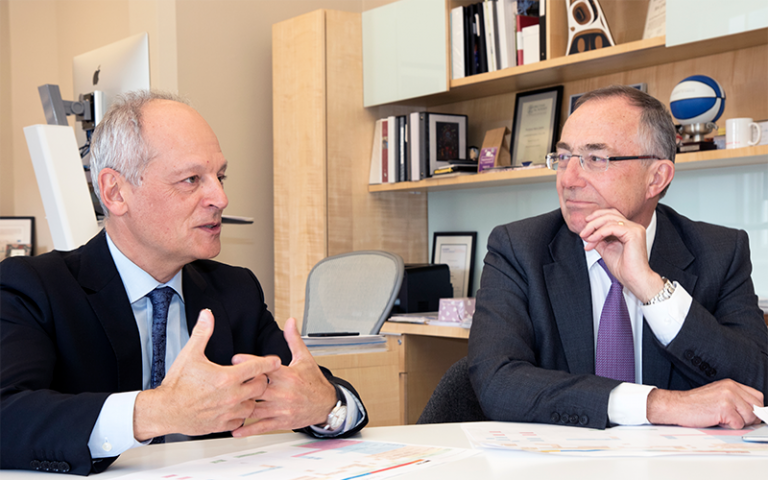UCL and University of Toronto strengthen their partnership
8 April 2019
A Provost-led visit to Toronto saw the institutions commit to further collaboration cross research, teaching and student exchange

A Provost-led delegation to the University of Toronto (U of T) last week saw the two institutions build their strategic global partnership by strengthening existing relationships and developing new ways of working together. The visit created a strong foundation for further collaboration across research, teaching and student exchange.
UCL and U of T already have over 30 established academically-led collaborations in fields spanning all four UCL schools, ten faculties and 30 departments, which have grown organically between members of academic staff. Since 2017, further collaboration has developed through the joint seed funding programme supported by both institutions. UCL and U of T also share a very successful undergraduate student exchange programme and co-published over 1,000 papers between 2012-18.
Collaborative areas
During the visit, UCL’s President and Provost Professor Michael Arthur and Vice-Provost (International) Dame Nicola Brewer met with U of T’s President Professor Meric Gertler to plan how to consolidate existing strong links and explore deeper development of links in emerging collaborative areas, such as brain sciences and artificial intelligence (AI) as well as developing collaborative educational programmes and links with professional services.
They were joined by Professor Brad Karp, Pro Vice Provost (North America), Dr Karen Edge, Institute of Education and Co-Chair of UCL-U of T Working Group, Professor Olga Ciccarelli, Institute of Neurology and Professor David Barber, Director, UCL Centre for Artificial Intelligence.
Tackling global challenges
Professor Arthur said: “As world-leading globally engaged institutions, we benefit from complementary academic missions. Many of the global challenges we face require cross-disciplinary collaboration and our partnership provides a strong foundation for this, enabling our research, teaching and enterprise to have an even greater global impact.”
Welcoming the UCL delegation to Toronto, Professor Gertler added: “UCL has become an indispensable part of our global academic network. We are pleased to work together with our colleagues in London to build upon our world-class research and provide students with invaluable international experience.”
For UCL, Canada offers excellent potential for collaboration as its higher education sector is globally competitive – it is home to some of the top world leading universities and the government is increasing levels of research funding over the next five years by an additional £2.3 billion. Toronto is also home to a new multi-partner Vector Institute to support development of AI, which is a key area for future collaboration for UCL.
 Close
Close

